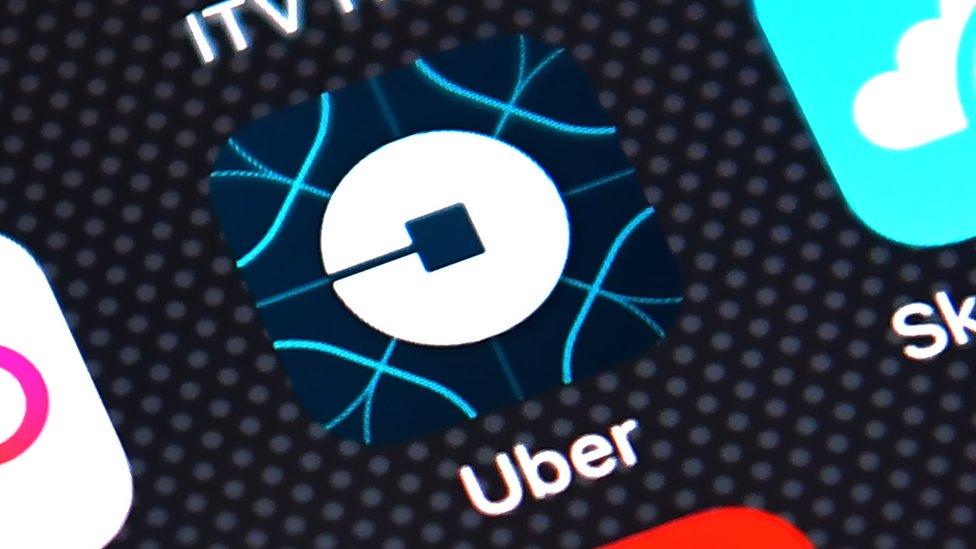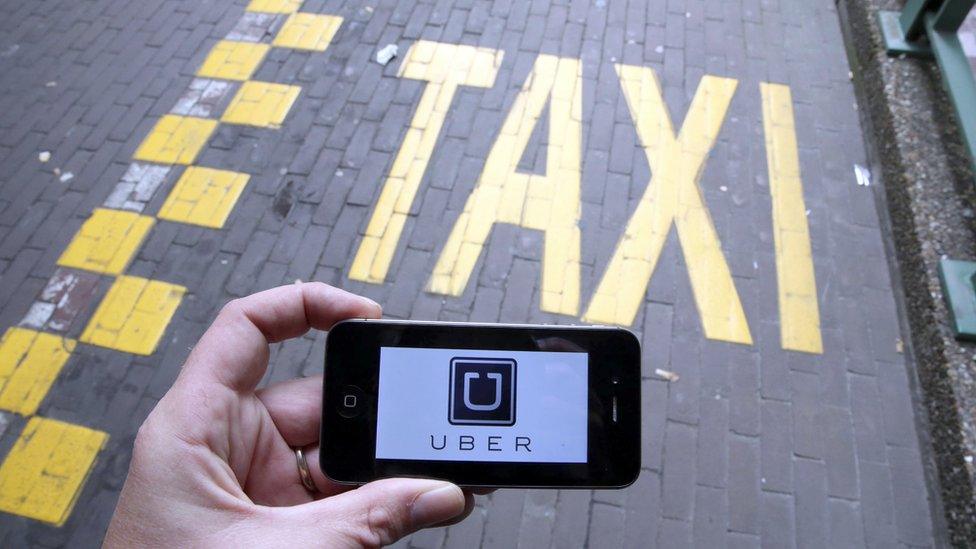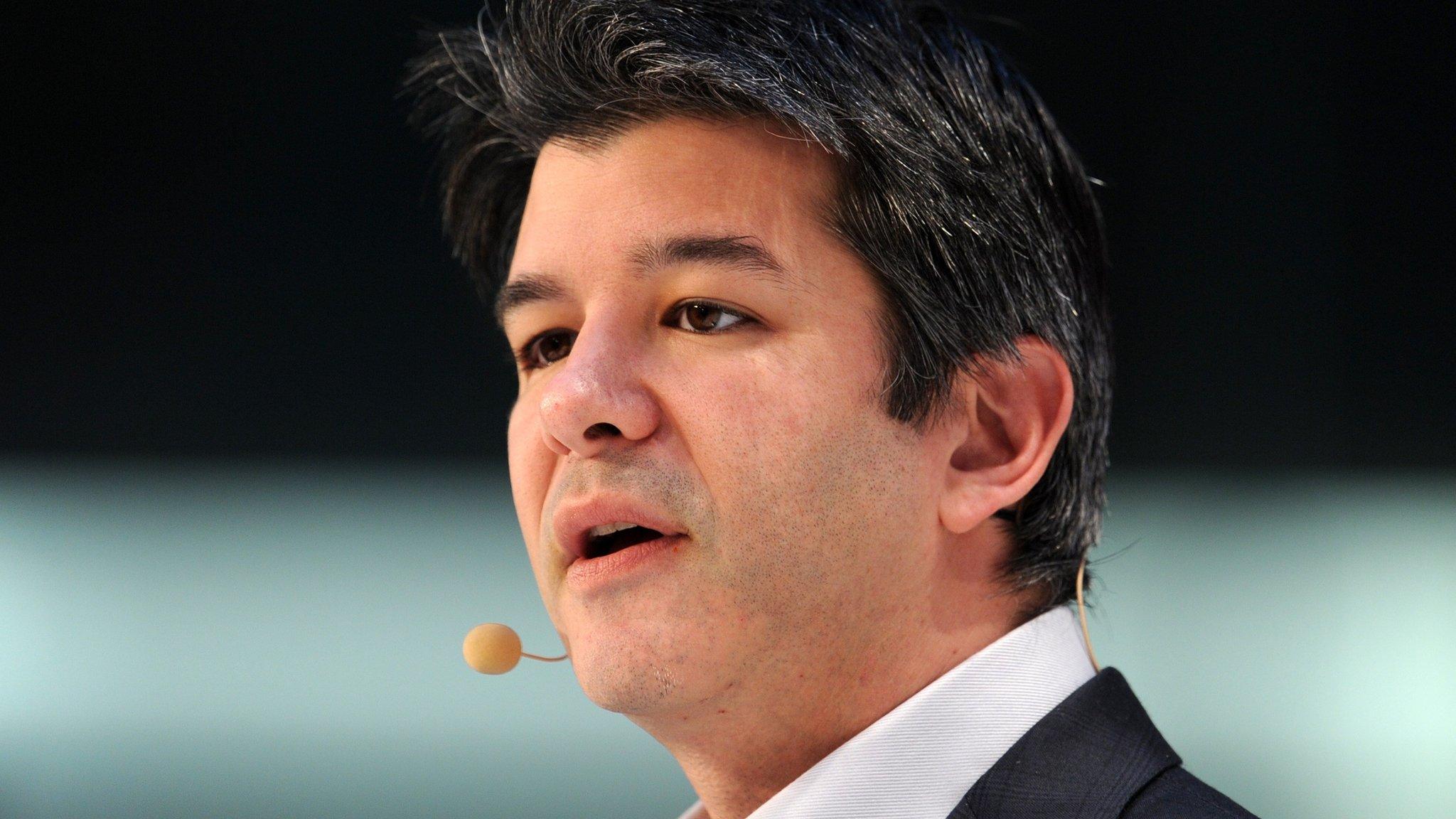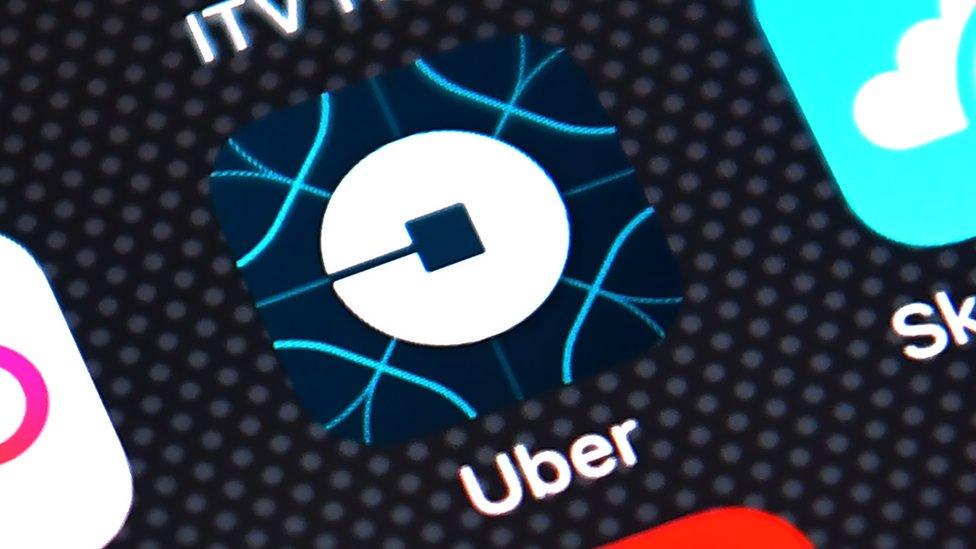Uber official apologises for 'misunderstanding' in Philippines
- Published

A top Uber official has apologised to the Philippines' transport regulator and vowed to respect its authority following a temporary ban on its services in the country.
The ride-hailing firm was ordered to stop services for a month in a dispute over accreditations for new drivers.
Uber briefly ignored the suspension and moved to appeal the decision.
The ride-hailing firm has faced other regulatory battles as it seeks to expand in Asia.
The suspension by the Land Transportation Franchising and Regulatory Board (LTFRB) concerns a violation of a directive to stop accrediting new drivers.
Uber said on Tuesday that it would appeal the order, and briefly resumed services in defiance of the ban.
But the company reversed course later in the day and complied with the order.
Uber official apologises
After initially rejecting its authority, Uber has adopted a more conciliatory tone with the transport regulator.
In a video posted on Philippines television network ABS-CBN's website on Wednesday, Uber's regional general manager for Asia Pacific, Michael Brown, said the company respected local authorities.
"We're going to do everything we possibly can to show that we respect the authority of the LTFRB," he said.
Reporters captured the comments as Mr Brown spoke to LTFRB chairman Martin Delgra.
The pair spoke ahead of a meeting held by the country's senate public services committee about Uber's situation, according to local media.
"Anything you need from us, we're going to do it," Mr Brown said.
"If there's been a misunderstanding in the past, that's on us and I apologise for that misunderstanding. We have every intention to respect the LTFRB," he said.
Mr Delgra said the regulator would work with Uber.
"This is not a fight, we're trying to work together to address public transport issues," Mr Delgra said.
Safety concerns over recalled Uber cars
Uber: The scandals that drove Kalanick out
Uber fires employees over harassment
Uber's troubles in the Philippines are the latest in a series of hurdles to its attempts to expand globally.
Speed bumps
The company has faced regulatory scrutiny in other Asian countries, including South Korea, Japan and India. Earlier this year Uber suspended operations in Macau after a dispute with local regulators.
Uber is also warding off legal challenges as it fights to repair a corporate image badly bruised by sexism and misconduct allegations.
Chief executive Travis Kalanick resigned in June, bowing to pressure from shareholders. His departure came after a review of practices at the firm and scandals including complaints of sexual harassment.
- Published4 August 2017

- Published21 June 2017

- Published7 June 2017
